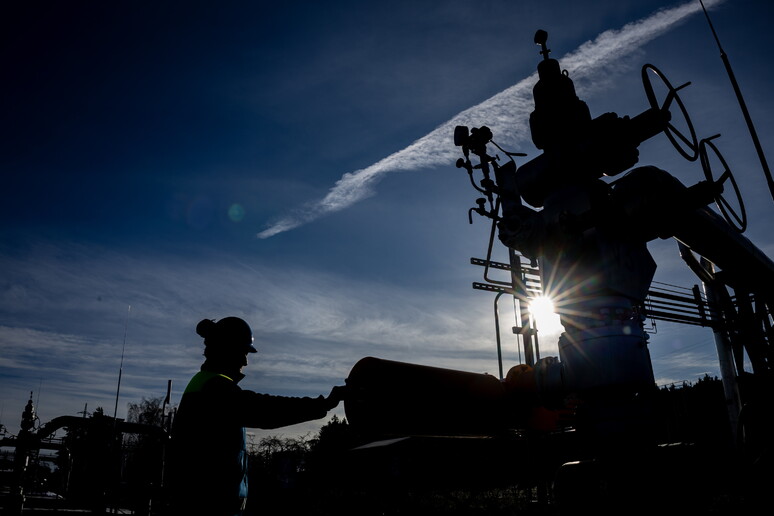Slovakia has criticised Ukraine's
decision to end Russian gas transit to Europe, calling it a
costly blow not only to Slovakia but the entire EU. While some
member states downplay the impact, others face mounting pressure
over energy security amid winter demands.
Slovak Prime Minister Robert Fico in Brussels on Thursday
addressed the alleged financial damage to Slovakia caused by
Ukraine's decision to cut off the transit of Russian gas to the
European Union and warned of possible retaliation against Kyiv
after a meeting with EU Energy Commissioner Dan J›rgensen.
The Slovak leader, who critics accuse of taking a pro-Russian
stance, said Slovakia might stop all humanitarian aid as well as
halt the supply of electricity in emergency situations to
Ukraine, or cut benefits for Ukrainian war refugees in Slovakia
- but only if it has no other option, the prime minister said.
Flows of Russian gas to Europe via Ukraine stopped on January 1
after Ukrainian President Volodymyr Zelenskyy refused to
continue decades of cooperation with Russia that had earned
billions of dollars for both Moscow and Kyiv.
Ukraine has accused countries that still buy Russian energy of
helping fuel Moscow's war machine, but the decision has caused
mixed reactions in Europe.
The move was welcomed by Ukraine's close ally Poland, who called
it a "new victory" for the West.
A Polish official speaking anonymously was cited by Bloomberg as
saying that Poland was ready to increase domestic electricity
production to compensate for potential shortages in Ukraine's
energy system in the event of action by the Slovak authorities.
According to Fico, the decision to stop the transit of Russian
gas via Ukraine is not just an empty political gesture, but an
extremely costly move that will come at the expense of the
entire EU, including Slovakia.
The Slovak prime minister earlier claimed that Slovakia, which
borders Ukraine, would lose nearly half a billion Euro in fees
for transporting the raw material. The solution, he said, is to
resume gas supplies from Ukraine or compensate for that
financial shortfall. The country also relies on Russian gas
itself.
Ukraine also long collected billions in transit fees. But
Ukrainian Energy Minister Herman Halushchenko said that the gas
transmission network, with EU assistance, had been prepared for
a decision to halt deliveries.
EU reassures stable supplies
Brussels has downplayed the impact that the loss of Russian gas
supply will have on the 27-member bloc overall.
"The situation is stable with all member States using a mix of
regular winter storage and imports from third countries, which
provide stable supplies to their consumers," said a spokesperson
for the Polish presidency of the Council of the EU. Poland
currently holds the rotating EU presidency until June.
The European Commission said the transit cut-off was expected
and reiterated the bloc's preparedness to replace the gas
supplies via four alternative routes. "The Commission has been
working for more than a year specifically on preparing for a
scenario without Russian gas transiting via Ukraine," it said.
The alternative routes include imports via Germany, Poland and
Italy with volumes mostly originating from Liquefied Natural Gas
(LNG) terminals as well as the so-called Trans-Balkan route from
Greece, Türkiye and Romania.
According to a Commission document, the EU received about 14
billion cubic meters of gas via Ukraine per year in 2023 and
2024. Compared to 40 billion cubic meters of gas before the war,
which began in 2022, volumes from Russia to the EU have been
drastically reduced.
Despite the end of transit through Ukraine, Russian gas
continues to reach the EU via other routes, including the
TurkStream and Blue Stream gas pipelines laid in the Black Sea.
Energy independence and adequate gas storage
Several individual EU countries have also signalled that the
cut-off of Russian gas via Ukraine is unlikely to affect their
gas supplies.
"The transit stoppage will not affect the Czech Republic," said
Marek Vosahlik, a spokesman for the country's Industry and Trade
Ministry, citing alternative gas supplies and previous
investments, adding that the gas prices on wholesale markets are
being closely monitored.
Romania is not affected as it does not have direct natural gas
supply contracts with Russia's state-owned energy company
Gazprom. The country's Energy Minister Sebastian Burdija told
the Romanian national news agency Agerpres: "In 2024 Romania
became the largest gas producer in the European Union.
Currently, Romania has almost two billion normal cubic metres
stored, with a daily consumption of less than 40 million normal
cubic metres".
Bulgaria's natural gas transmission and storage operator
Bulgartransgaz told the Bulgarian news agency BTA there were no
significant changes in natural gas flows through Bulgaria in the
first few days of 2025 compared to the second half of December
2024.
Asked about the progress of the Vertical Gas Corridor on the
territory of Bulgaria, Bulgartransgaz released a statement
stating that the projects of the company, part of the Vertical
Gas Corridor initiative to increase the transmission capacities,
are key to ensure the security of natural gas supply for the
region.
Hungary is set to be largely unaffected as it receives Russian
gas via the Black Sea pipeline, an alternative route that
bypasses Ukraine by running through Türkiye and up through the
Balkans.
Italy's Minister of the Environment and Energy Security,
Gilberto Pichetto, also said gas supplies are currently still at
an adequate level, adding that further measures are being
evaluated to maximize the stock in storage in order to face the
current winter season. He noted however that electricity bills -
linked to the price of gas - of the most vulnerable consumers
risk an increase as a result of the interruption of supplies of
Russian gas.
ALL RIGHTS RESERVED © Copyright ANSA











